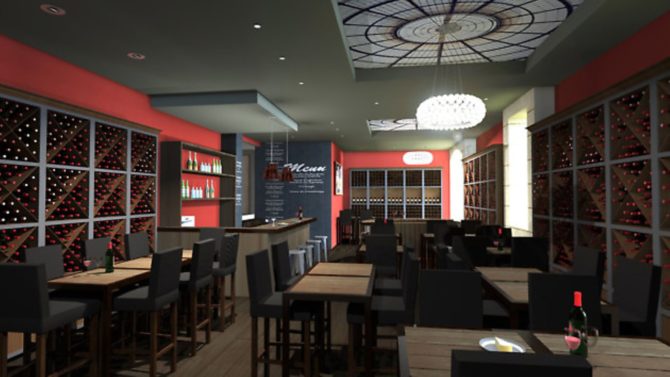Building a wine cellar

Matthieu Cany of Sextant French Property explains how building your own wine cellar could be a great investment in France

Wine cellars may not be the first asset you think of when considering adding value to your home, but they can reap dividends.If you want to stand out from the crowd, a wine cellar could be a sensible investment indeed. Like swimming pools, home cinema systems and gyms, wine cellars are fast becoming a status symbol of their own. What’s more, at a fraction of the price.
BUILD YOUR OWN
Building your own wine cellar isn’t an impossible feat, there are so many options out there from the humble wine rack to more grandiose and extravagant designs, as well as a host of accessories and add-ons from stylish ladders, LED lighting designed to show off your finest vintages, glass panels, leather steps and other snazzy designer features.
Hardware shops sell ready-made kits, but if this is all too much for you, you could pay artisans to come in, measure the area and custom build your wine cellar for you. Many properties will already have some sort of basement cellar which could easily be given a facelift and turned into a new home for your wine.
RUDIMENTARY RULES
There are a few basic tenets to adhere to when considering the dos and don’ts of wine cellars:
Temperature: too much variation in temperature will age the wine very fast; a steady 10 degrees will suffice, although an extra 5 degrees wouldn’t go amiss. The main thing is to keep the temperature constant. Luckily most original cellars and basements are already at a natural temperature of around 10 degrees. You’ll know if your wine is damaged if it changes colour, veering towards a brick red, and by its taste too – if you find it tastes slightly of sherry (an oxidised wine), then you’ve got yourself an oxidised wine on your hands.
Damp is very harmful to wine- the labels could fall off (thus decreasing the value of your vintage) and the cork itself could rot and make the wine undrinkable, so you’ll need to keep the place well ventilated. A humidity of 70% is probably ideal. If you need to increase the humidity in your cellar, leave out a bucket of water which will naturally evaporate and raise humidity levels.
Leave the wines to themselves: it may sound like common sense, but it’s best not to store any household products (bleach and other cleaning products for instance) or food stuffs near your bottles, as strong smells can contaminate the wines.
Storing your bottles horizontally is also far better for them than storing them upright. Potentially they could leak, and oxidization can again be a problem.
Lighting: harsh or bright lights can also be harmful to your wine, likewise leading to oxidization. UV rays are also detrimental.
Vibrations (from a washing machine, nearby railway lines, general noise etc) will also harm your wine, as it causes a chemical reaction inside the bottle. The best thing for them is not to be moved at all, until you come to drink or sell them of course.
Finally, it’s a common misconception that wine improves with age: this is only the case for a good wine, which can become a great wine over time. If you store a poor quality wine, it will remain a poor quality wine, and nothing will improve it!
A SOUND INVESTMENT
If you’re a serious wine enthusiast and plan to store a collection of quality vintages, keeping them in a wine cellar can be a way of guaranteeing their provenance, if you plan to sell on some of your wine. Indeed, with a sophisticated, well ventilated storage system that keeps track of humidity; your wine cellar can be on a par with professional storing facilities.
You could be the proud owner of a beautifully renovated Burgundy farmhouse (reference 36861), set in 7.8 acres of land with a pool, stables, outbuildings, and of course a wine cellar. With six bedrooms and a host of period features, the wine cellar could be the jewel in the crown, a unique feature set to dazzle all your guests. Located near Charolles in the Saone et Loire, this attractive property is on the market for €416,000.
A wine cellar can become a remarkable feature, a talking point, conversation starter and above all, it can add value to your home. With no running or maintenance costs once in place, they make the perfect investment. Formally an extravagance many homeowners thought the preserve of the rich, the wine cellar is now within everyone’s grasp. And like a good wine, your wine cellar can get better with age too.
Matthieu Cany is managing director of Sextant French Property
Tel: 020 7428 4910
www.sextantproperties.com
Share to: Facebook Twitter LinkedIn Email


